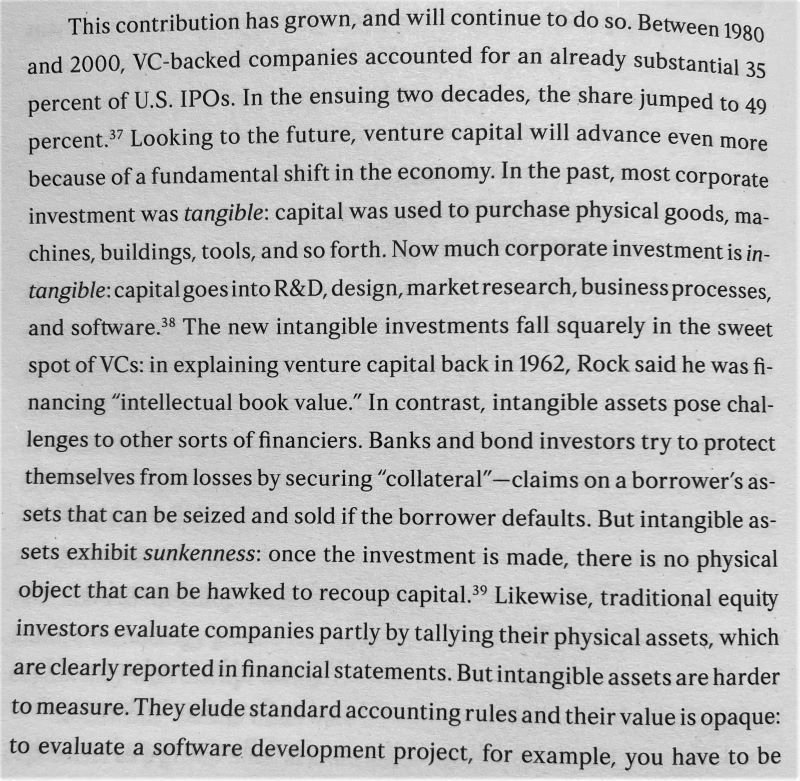Opportunity cost

Lithuania Tech Weekly #79
Subscribe here
Critical updates during the week -Linkedin and twitter
Sponsoring the newsletter
work in progress
- PL. Surfashark (part of Nord Security) to open Warsaw office for further expansion (in the meantime Britain is getting concerned Poland will have higher GDP per capita, soon).
- Partnerships. Viezo and LTG Link. SME Finance and Deepfin. Astrolight and European Space Agency (testing).
- Early-stage funding. The slowdown is a pain to watch, so few thoughts below.
rounds & capital
- AVIA Capital (Poland) and LitCapital investing EUR 7 m in EV charger developer and producer Elinta Charge. A sound growth round after taking EUR 0.4m debt from VIVA last year. Interesting - "Elinta Charge will use the funding from AVIA Capital, which specialises in scaling up innovative companies, to explore production opportunities in Poland, benefiting from the country’s strong automotive component sector, supportive R&D policy and infrastructure, as well as its proximity to key EU markets."
- WAU, UK eBike maker led by Linas Pozerskis, secured £650,000 in Angel Investment Network cash
- Contrarian Ventures are rumoured to raise the second found capped at EUR 100m - Bloomberg reports. CTVC just released latest climate tech investment report - activity set to increase YoY, there is still some hope for the planet.
- Presto Ventures (GoRamp investors) launches €30M fund to support (support or generate return?) CEE startups.
- Justina Banyte joining FLXBL.no (training app in Norway) seed round
- Amadeus invests in CHOOOSE (Contrarian portfolio) to offer carbon
emissions information and climate action options.
roleplay
Elinta Charge - Head of Sales
Whatagraph - Senior Product Manager
Startup Lithuania - Project Manager
Vassla tech team in Lithuania - various roles
insights
- Nothing impresses me (phone)
- Mario (the Generalist - great newsletter) launched an investment arm, a $12.25M fund designed to help epic startups maximize the power of storytelling.
- Self-help corner - 35 Principles for 35 Years
- Governments: let's do more PR to attract talent to public sector. But - Finland.
- Common traits of founding CEOs of European unicorns (Mosaic Ventures):
- Prior experience as a founder (~65% were repeat founders)
- No previous industry experience in the sector of their unicorn business (~55%)
- A Master’s or PhD degree (~55%)
- More than 10 years of work experience before founding the company (~35%)
- Europe’s top 10 ‘unicorn universities’ 2022 (besides INSEAD and usual suspects Cambridge, Oxford, LSE, two are from Sweden, also St Gallen, Technical University Munich, HEC, CBS).
Opportunity cost
I don't want to know what's lost
A survey in Sweden asked economists - what is the most powerful concept from your field that? The overwhelming choice was "opportunity cost". Essentially, what you give up when making another choice.
That resonates when looking at the startup funding market this year (2022 H1) in Lithuania. It’s down by 47% in capital invested, and 40% in a number of rounds. There is hardly any such radical drop in Europe, and is caused by a) local seed funds having little capital available b) pre-seed accelerators not having funds (yet) to deploy.
Survival of the fittest? Indeed, the best founders will find investors, and these might be some of the strongest teams out there. Lithuania is famous for bootstrapped success (Nord Security, Bored Panda, Omnisend, Kilo Health, other) and has seen some extremely resourceful founders. These firms were founded when venture capital was hardly available, meaning we got impressive scale-ups despite capital constrain.
But we shouldn't jump to conclusion that startups rise despite investment. We don’t know the counterfactual. What would we have today, if the venture ecosystem would have been deploying EUR 100m+ annualy, for the last seven years, at pre-seed and seed? Would these companies be different today - or perhaps we would have 20x of them?
Looking at Israel or Estonia is pretty clear that more financing=more startups=more successful ones. Even with more failed ones, you get more experienced talent in the ecosystem, which gets sucked back into the game. As a country, you simply get more shots on the goal, and misses only bring you closer to winning.
Opportunity cost plays into the personal level, too. For example, Entrepreneur First invests into founders pre-team, and pre-idea. The key for them is to provide a first check and convince founders that their opportunity cost is not leaving the job - it is not building that huge company they might be destined to do. So it is about lowering the threshold, giving time and space for entrepreneurs to launch companies (EF portfolio now worth some $10 billion over more than 500 companies).
The opposite of that is the early stage market when funding is limited. It simply means we are losing founders as we speak - instead of trying, they go ahead for another promotion or other "less risky" career move.
Thus that's the cost we're taking in as the financing gap happens - fewer startups, fewer returns, and fewer founders. But how important is this to the economy?
Lithuania is one of these young ambitious economies trying hard to build prosperity. Starting 30 years ago, no capital, little knowledge (how to build, how to sell, how to manage the business) was available. It limited economic development options to very few. Foreign investment has been great (someone brings the business, locals get training on the job), as well as export promotion (some of these SMEs find global markets and grow - think laser firms). You can also try to play with local champions (like telcos, energy companies or big retailers) but this has its limits - not very innovative, limited spillovers.
Thus the true challenge is how to start building local companies - global, productive, and profitable - at scale?
Luckily, we have now arrived to the century when playbooks are available. They have been written by world's most valuable companies (FAANGS and Teslas), so it actually works. The scale is also readily available - we are living in a pretty flat world, which allows any location to participate - you can actually sell, ship and support customers in Australia, without even visiting the airport.
The new playbook calls for a fresh approach to financing - welcome to the rise of venture capital.


Therefore it is no minor issue that we are allowing early-stage financing to cool down for a while. There is an opportunity cost associated with fewer startups top-of-funnel for years to come and less of associated return in a 5-10 year timeframe.
But probably the worst part of this is that the tech ecosystem is still perceived as this little subsector of "real" economy, nice to have but not yet critical. Looks like we are failing the comprehend the magnitude of change - not in terms of technology, but how new companies get launched, grow and rise to the top.
Member discussion